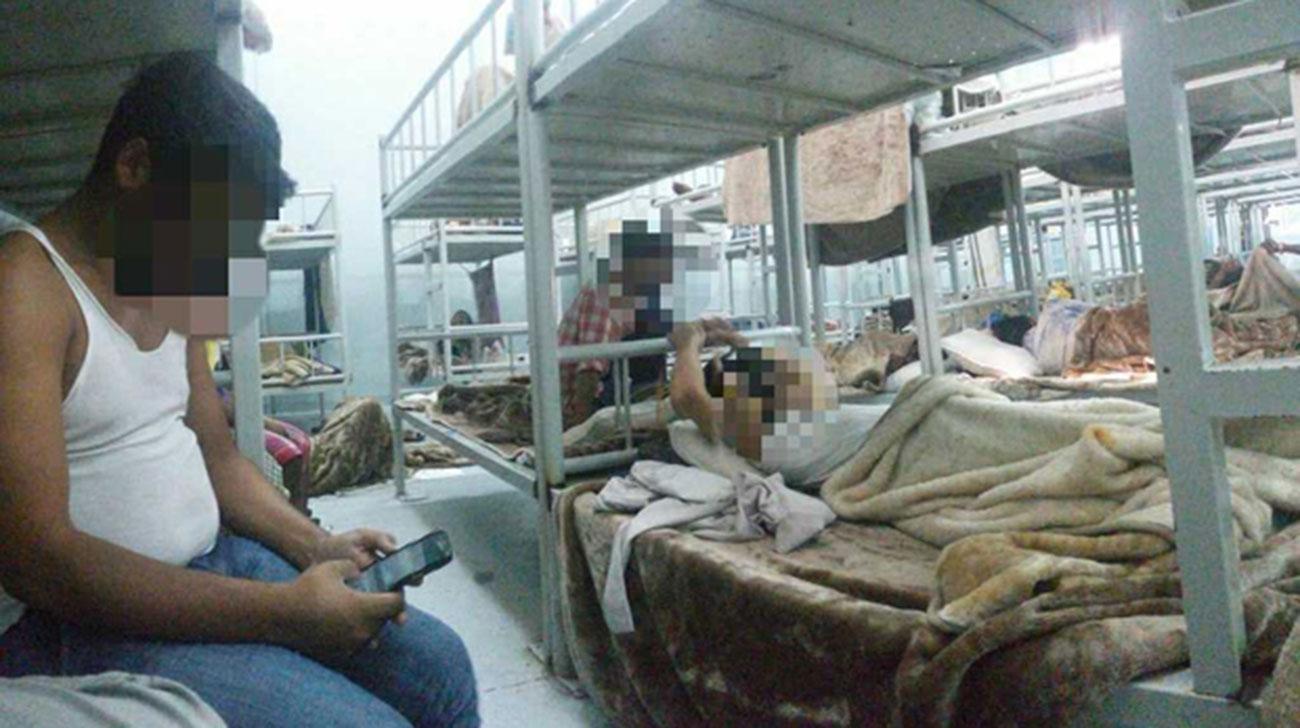Rohingya Muslims residing in a Saudi Arabian detention center launched their third hunger strike according to Al Jazeera. The strike was launched to protest the poor conditions within the Saudi detention centers. Authorities have reacted by threatening to deprive strikers of water and taking away necessities like pillows, shirts, and other essential items. Saudi Arabia has also begun forcibly deporting Rohingya – often handcuffed – back to Bangladesh, where they face being repatriated to Myanmar.
Saudi authorities have reportedly made it near impossible for the Rohingya detainees to continue their hunger strike. In addition to depriving them of essential items, it has also been reported that Saudi authorities have been forcing Rohingya detainees into “hot rooms.” These rooms use high temperatures to force the exhausted and malnourished Rohingya to give up their hunger strike. At least seven Rohingya have been taken to the hospital to be treated for acute malnutrition since the strike began. Many participating say that it is “unbearable.”
This disturbing trend of maltreatment at the hands of Saudi authorities comes as yet another nail in the Rohingya coffin. The ethnic group has faced discrimination from all sides dating back to the 1960s and 70s. Despite being a stateless minority since at least the 1980s, the Rohingya have experienced new and excruciating violence in Myanmar. Millions have been forced to flee the small South Asian state since 2017 when Myanmar’s army moved against the small minority claiming it was fighting “militants.” Current estimates state that there are nearly 3.5 million Rohingya that have been scattered in a worldwide diaspora. According to the BBC, approximately 500,000 now reside in Saudi Arabia. Many of the Rohingya currently residing in Saudi Arabia came to the country on pilgrimage visas, but have since remained in order to work and seek refuge from what both the former United Nations (UN) High Commissioner Zeid Ra’ad al-Hussein and UN Secretary General Antonio Gutierrez have called “a textbook example of ethnic cleansing.”
Of the nearly 650 Rohingya men being held in ten rooms in a Saudi detention center, many have been held by Saudi Arabia since 2012, after a violent flare up between Rakhine Buddhists and Rohingya Muslims forced many from Myanmar. Many of those who initially came to Saudi Arabia in 2012 are currently being forcibly deported in large groups back to Bangladesh, where they will have no choice but to join the rapidly expanding Rohingya camps on the Bangladeshi border. These camps are known for their squalid conditions, and are constantly lacking in necessary aid. Currently, for example, only 70% of the more than a million Rohingya in Bangladesh are currently receiving life-saving food aid.
Saudi Arabia considers the detained Rohingya illegal immigrants, and argues that they have overstayed visas or entered the country by using false documents. Saudi Arabia uses this charge to hold the migrants for an indefinite amount of time, and as they are not Saudi citizens, they have no legal recourse through which to appeal their detention. Preparations for deportation began in November of 2018, when Saudi Crown Prince Mohamed Bin Salman met with Sheikh Hasina of Bangladesh, and asked her to accept the Rohingya in Saudi Arabia’s centers. Later on in January of 2019, Saudi Arabia deported 250 Rohingya individuals back to Bangladesh, many of whom were loaded onto planes handcuffed, and against their will.
Even while many Rohingya are being deported to Bangladesh – a situation that some human rights activists have called a “layering” of human rights abuses onto a community already facing ethnic cleansing and genocide – other Rohingya, primarily women, are being trafficked and forced to work as indentured servants in the service of Saudi families.
Saudi Arabia is also not the only state to be forcing Rohingya back to Bangladesh and Myanmar. India for example, deported nearly 40,000 refugees back to Myanmar following a court decision, potentially dooming them to the government’s assaults on Rohingya communities. By refusing these refugees in fear of their lives from the right to seek shelter in another country, these deportations make Saudi Arabia and India complicit in the Rohingyas suffering.
Since declaring their hunger strike on Saturday, other Rohingya focused groups have declared their support for Rohingya activists in Saudi Arabia. Ultimately, the strikers seek freedom from their nearly seven years of detention in immigration facilities in Saudi Arabia. That said, it is unlikely that the hunger strike will change Saudi policy toward the migrants, many of whom have already been held for many years. In order to comply with international standards, Saudi Arabia must immediately cease its persecution and deportation of Rohingya Muslims, and recognize the extraordinary hardship this minority community is under.
Casey O’Hara is an Intern at ADHRB





